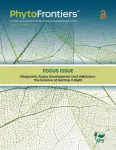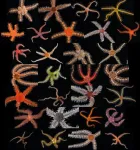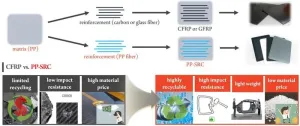(Press-News.org) Chestnut Hill, Mass. (7/17/2023) – Putting truth to the test in the “post-truth era”, Boston College psychologists conducted experiments that show when Americans decide whether a claim of fact should qualify as true or false, they consider the intentions of the information source, the team reported recently in Nature’s Scientific Reports.
That confidence is based on what individuals think the source is trying to do – in this case either informing or deceiving their audience.
“Even when people know precisely how accurate or inaccurate a claim of fact is, whether they consider that claim to be true or false hinges on the intentions they attribute to the claim’s information source,” said Professor of Psychology and Neuroscience Liane Young, an author of the report. “In other words, the intentions of information sources sway people’s judgments about what information should qualify as true.”
Lead author Isaac Handley-Miner, a PhD student and researcher in Young’s Morality Lab, said the so-called post-truth era has revealed vigorous disagreement over the truth of claims of fact — even for claims that are easy to verify.
“That disagreement has alarmed our society,” said Handley-Miner. “After all, it’s often assumed that the labels ‘true’ and ‘false’ should correspond to the objective accuracy of a claim. But is objective accuracy actually the only criterion people consider when deciding what should qualify as true or false? Or, even when people know how objectively accurate a given claim of fact is, might they be sensitive to features of the social context—such as the intentions of the information source? We set out to test whether the intentions of information sources affect whether people consider a claim of fact to be true or false even when they have access to the ground truth.”
The researchers showed participants a series of claims accompanied by the ground truth relevant to those claims, according to the report. In one experiment, the claims concerned politicized topics such as climate change, abortion, and gun violence. In another experiment, these claims concerned non-politicized topics such as the average lifespan of a car and the price of a pair of headphones. The researchers asked participants in both experiments to decide whether they would consider each claim of fact to be true or false.
When presented with a claim of fact, study participants were presented with one of two scenarios about the source of the information they were assessing: the information source either wanted to deceive or inform them. To do this, the researchers swapped out the news outlet that allegedly published the claim. For example, one participant might be told that a claim about climate change came from Fox News, while another participant might be told that the same claim about climate change came from MSNBC, Handley-Miner said.
In the experiment with claims about non-politicized topics, the researchers told the participants whether the information source was trying to be informative or deceptive, he said.
“We presented participants with claims of fact and ensured that participants knew precisely how accurate or inaccurate those claims were,” Handley-Miner said. “Across participants, we varied whether the source of those claims intended to inform or deceive their audience. Participants reported whether they would consider the claims to be true or false given the supplied ground truth. We then evaluated whether participants were more likely to classify claims as true when the information source was trying to inform versus deceive their audience.”
The researchers worked with 1,181 participants and examined approximately 16,200 responses fielded during their experiments.
Although participants knew precisely how accurate the claims were, participants classified claims as false more often when they judged the information source to be intending to deceive them.
Similarly, they classified claims as true more often when they judged the information source to be intending to provide an approximate account rather than a precise one, according to the study. For instance, what if someone knows for certain that 114 people attended an event, but one source reports 109 people attended, and another source reports that 100 attended? An individual is likely to view the latter number as true because it’s assumed the source is providing an estimate, Young said.
The findings suggest that, even if people have access to the same set of facts, they might disagree about the truth of claims if they attribute discrepant intentions to information sources.
The results demonstrated that people are not merely sensitive to the objective accuracy of claims of fact when classifying them as true or false. While this study focused on the intent of the information source, Young and Handley-Miner say intent is probably not the only other feature people use to evaluate truth.
In future work, the researchers hope to develop an expanded understanding about how people think about truth. Moreover, given the rise in popularity of Artificial Intelligence models, such as ChatGPT, the researchers may investigate whether state-of-the-art AI models “think” about truth similarly to humans, or whether these models merely attend to objective accuracy when evaluating truth.
The research was supported by funding from John Templeton Foundation, the National Defense Science and Engineering Graduate Fellowship, and BC’s Schiller Institute for Integrated Science and Society’s Grants for Exploratory Collaborative Scholarship (SIGECS) program.
In addition to Young and Handley-Miner, co-authors of the report included doctoral candidate Michael Pope, Boston College Associate Professor of Philosophy Richard Atkins, Associate Professor of Communication Mo Jones-Jang, and Associate Professor of Philosophy Daniel McKaughan; and Dartmouth College’s Jonathan Phillips.
END
In determining what’s true, Americans consider the intentions of the information source
Boston College psychologists tested the roots of truth judgments in a so-called “post-truth” era
2023-07-17
ELSE PRESS RELEASES FROM THIS DATE:
Broad-scope plant science journal publishes focus issue on critical biosecurity gap
2023-07-17
The vast scale of global trade presents a constant threat of introducing new plant diseases, which is challenging to the United States system of biosecurity. Plant health professionals often must respond quickly to a newly introduced or emerging plant disease outbreak even before a well-validated diagnostic test is available. Additionally, thousands of plant pathogens that already exist have been routinely diagnosed with assays that were not fully or consistently validated, which can lead to inaccurate diagnoses, delays in proper disease management, and significant consequences for growers and the public.
Growing awareness of this gap in coordination and resources for plant disease ...
Political apathy spreads from parents to adolescent children
2023-07-17
Political apathy is growing in democracies around the world. Political apathy, also known as political alienation, describes feelings of separation and disaffection, a sense of powerlessness and an indifference to politics and political institutions. A hallmark of political alienation is a refusal to vote or participate in political activities. Adolescents and young adults are no exception to these trends. In many countries in Europe and North America, the youngest voters have the lowest participation rates.
Why are new voters so apathetic about politics? Many factors are ...
Ambitious global $1 billion per year ‘mission science’ model needed to win on sustainable development in time, warns experts
2023-07-17
Ambitious global $1 billion per year ‘mission science’ model needed to win on sustainable development in time, warns experts
From the climate emergency and global health to the energy transition and water security, new report argues the global science and science funding efforts must be fundamentally redesigned and scaled up to meet complex needs of humanity and the planet.
July 17, 2023, NEW YORK – The current sustainability science model requires a fundamental redesign to keep up with the pace and complexity of the challenges facing the planet, argues the high-level ...
New study uncovers taxonomic breakthrough in the common ophiuroid Ophiothrix angulata (Echinodermata: Ophiuroidea)
2023-07-17
Ophiothrix angulata, a widely recognized and prevalent ophiuroid species in the Western Atlantic, has long been the subject of taxonomic debate due to its remarkable morphological diversity. A new study just published in PeerJ Life & Environment has shed light on the species' taxonomy, revealing a significant scientific breakthrough.
Led by a team of researchers from Universidad Nacional Autónoma de México, Universidad Católica del Maule and Florida Natural History Museum, the comprehensive study aimed to assess species delimitation ...
Sergio Amancio receives 2023 Yoshiaki Arata Award
2023-07-17
On the occasion of its annual general assembly in Singapore on 16 July 2023, the International Institute of Welding presented Sergio Amancio, from the Institute of Materials Science, Joining and Forming at Graz University of Technology (TU Graz), with this year’s Yoshiaki Arata Award in recognition of his scientific achievements. This award, consisting of a medal and a certificate, is considered one of the world’s most important awards for research in welding and additive manufacturing and usually goes to veteran researchers who are recognised for their life’s work. For ...
Current evidence identifies health risks of e-cigarette use; long-term research needed
2023-07-17
Statement Highlights:
The number of people who use electronic nicotine delivery systems, typically referred to as e-cigarettes, has grown exponentially, especially among youth and young adults. E-cigarette use more than doubled from 2017 to 2019 among middle and high school students.
Ingredients of e-cigarettes, including nicotine, flavoring agents, sweeteners and propylene glycol and vegetable glycerol, may each independently pose dangerous health risks.
More clinical studies on the long-term impact of e-cigarettes on the heart, blood vessels and lungs are needed, and experts emphasize additional molecular and laboratory research ...
Developing new materials to accelerate the arrival of 'air taxis'
2023-07-17
In order for future mobility, such as urban air mobility (UAM), to become a reality, it must be fuel efficient and reduce carbon emissions, which requires the development of new materials with excellent physical properties and recyclability. Self-reinforced composites (SRCs) are inexpensive, lightweight, and have advantages in terms of disposal and recycling as the reinforcement and the base material are composed of the same material. For this reason, it is attracting attention as a next-generation composite material to replace carbon fiber-reinforced composites used in aircraft.
Korea Institute of Science and Technology (KIST, President ...
New findings suggest historical infanticide in Europe likely more widespread than estimated
2023-07-17
‘Routine’ infanticide of newborns by married parents in early modern Europe was a much more widespread practice than previously thought, a new book posits.
This fresh insight sits at the heart of a new book, Death Control in the West 1500–1800: Sex Ratios at Baptism in Italy, France and England, by Gregory Hanlon and contributors.
The French-trained behavioural historian explains: “In most cases, infanticide was a crime leaving no aggrieved party seeking revenge if it was committed right away. It could be overlooked and forgotten with the passage of time.”
Widespread infanticide
Hanlon, who is Distinguished Research Professor at Dalhousie University in ...
Prescribing psychostimulants for people at risk of overdose
2023-07-17
Growing evidence supports prescribing psychostimulant medications to help reduce use of illegal stimulants such as methamphetamine, authors write in a CMAJ (Canadian Medical Association Journal) commentaryhttps://www.cmaj.ca/lookup/doi/10.1503/cmaj.230266.
Illegal stimulant use is rising, judging by the presence of these drugs in at least half of all opioid deaths in Canada in 2022.
Following evidence from clinical trials in Australia, Europe and the United States, physicians and nurse practitioners in Canada and other countries are increasingly prescribing psychostimulants as harm reduction for stimulant use disorder.
"This emerging ...
THE LANCET ONCOLOGY: Cancer experts call for cancer care to be centred on patients rather than the commercial bottom-line
2023-07-17
Commercial, rather than patient interests, often drive cancer care and research and patients deserve better, argue a group of global oncologists and patient advocates in a Comment published in The Lancet Oncology journal. The authors also establish core guidelines for the development of a new patient-centred movement in cancer care - Common Sense Oncology.
The Comment says there has been a shift over the past few decades from predominantly publicly funded clinical trials designed to answer questions important to patients, to industry-funded trials which aim to achieve ...
LAST 30 PRESS RELEASES:
Wildfire smoke linked to rise in violent assaults, new 11-year study finds
New technology could use sunlight to break down ‘forever chemicals’
Green hydrogen without forever chemicals and iridium
Billion-DKK grant for research in green transformation of the built environment
For solar power to truly provide affordable energy access, we need to deploy it better
Middle-aged men are most vulnerable to faster aging due to ‘forever chemicals’
Starving cancer: Nutrient deprivation effects on synovial sarcoma
Speaking from the heart: Study identifies key concerns of parenting with an early-onset cardiovascular condition
From the Late Bronze Age to today - Old Irish Goat carries 3,000 years of Irish history
Emerging class of antibiotics to tackle global tuberculosis crisis
Researchers create distortion-resistant energy materials to improve lithium-ion batteries
Scientists create the most detailed molecular map to date of the developing Down syndrome brain
Nutrient uptake gets to the root of roots
Aspirin not a quick fix for preventing bowel cancer
HPV vaccination provides “sustained protection” against cervical cancer
Many post-authorization studies fail to comply with public disclosure rules
GLP-1 drugs combined with healthy lifestyle habits linked with reduced cardiovascular risk among diabetes patients
Solved: New analysis of Apollo Moon samples finally settles debate about lunar magnetic field
University of Birmingham to host national computing center
Play nicely: Children who are not friends connect better through play when given a goal
Surviving the extreme temperatures of the climate crisis calls for a revolution in home and building design
The wild can be ‘death trap’ for rescued animals
New research: Nighttime road traffic noise stresses the heart and blood vessels
Meningococcal B vaccination does not reduce gonorrhoea, trial results show
AAO-HNSF awarded grant to advance age-friendly care in otolaryngology through national initiative
Eight years running: Newsweek names Mayo Clinic ‘World’s Best Hospital’
Coffee waste turned into clean air solution: researchers develop sustainable catalyst to remove toxic hydrogen sulfide
Scientists uncover how engineered biochar and microbes work together to boost plant-based cleanup of cadmium-polluted soils
Engineered biochar could unlock more effective and scalable solutions for soil and water pollution
Differing immune responses in infants may explain increased severity of RSV over SARS-CoV-2
[Press-News.org] In determining what’s true, Americans consider the intentions of the information sourceBoston College psychologists tested the roots of truth judgments in a so-called “post-truth” era




